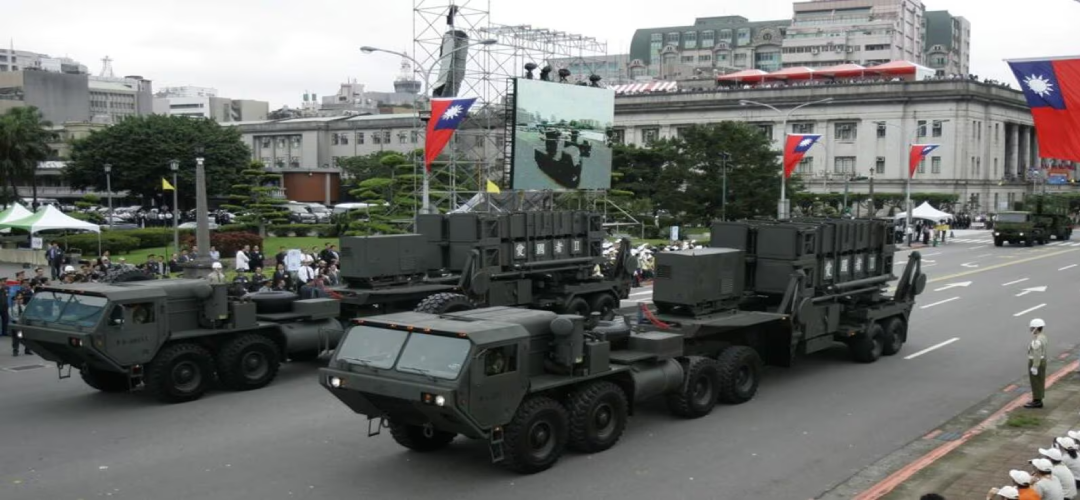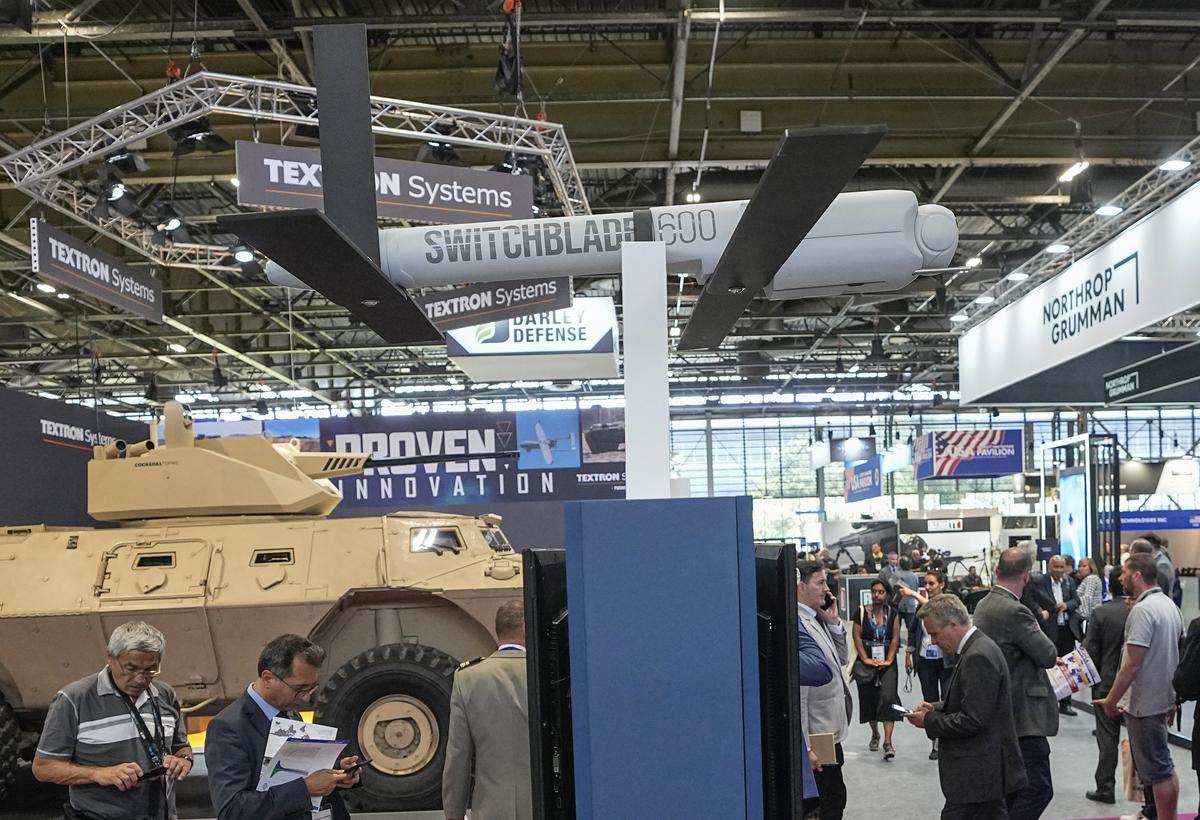The West Sanctioned!!
January 13, 2024 | Expert Insights

On January 7, 2024, China sent tremors through the international diplomatic and economic landscape by announcing sanctions on five U.S./ UK defence companies: BAE Systems Land and Armament, Alliant Techsystems Operation, AeroVironment, ViaSat, and Data Link Solutions. This move, timed just days before Taiwan's crucial presidential election, marks a significant escalation in tensions between the two superpowers over the self-governing island.
While the immediate financial impact might be limited, the symbolism is loud and clear. China is sending a strong message to Taiwan, the U.S., and the international community. Will China take action against countries/ companies that do business with these sanctioned entities?
Background
At the heart of the matter lies the issue of unification of Taiwan, one that is the most dangerous flashpoint threatening global peace and stability. While this unresolved dispute has simmered for decades, fuelling periodic spikes in military activity and diplomatic friction, a determined President Xi Jinping has publicly stated numerous times that he is running out of patience to keep it pending for very long. China demands a closure by military force if required, U.S. concerns notwithstanding.
The narrow Taiwan Strait, barely 180 kilometres wide, is not just a geographic feature with a 23 million population: it's a chasm of competing narratives, historical wounds, and uncertain futures. On one side lies mainland China, a behemoth rising from centuries of imperial glory and recent economic might. Across the Strait, on the verdant island of Taiwan, a different story unfolds. Forged in the crucible of the Chinese Civil War, Taiwan embraced democracy and carved its own identity. Its flourishing tech industry, vibrant civil society, and distinct cultural tapestry paint a portrait of a nation far removed from the mainland it once called home. The people of Taiwan, in overwhelming numbers, see themselves as distinct - not just politically but culturally and emotionally. To them, "unification" isn't a historical inevitability but a potential encroachment on their hard-won sovereignty.
Yet, beneath the surface of tension, there are threads of connection. Economic interdependence, cultural exchange, and shared family ties create a complex tapestry of human interaction. Many Taiwanese have relatives on the mainland, and despite the political divide, familial bonds endure.

Analysis
The $300 million arms sale to Taiwan, a seemingly modest sum in the grand scheme of global defence spending, ignited a firestorm of reactions, culminating in China's carefully calibrated sanctions. While the immediate financial impact on the targeted firms might be limited, the implications extend far beyond balance sheets and quarterly earnings reports. The sanctions, aimed at Western defence companies with minimal Chinese exposure, were less about inflicting economic damage and more about sending a clear strategic message.
Each targeted company, like carefully chosen pieces on a Go board, represents a specific pressure point. BAE Systems, a British defence giant, represents Europe's entanglement in Taiwan. Alliant Techsystems, a major U.S. weapons supplier, directly challenges China's concerns over arms proliferation. Drone manufacturer AeroVironment highlights technological advancement, a key focus of Taiwan's military modernization, that China finds unnerving. ViaSat and Data Link Solutions, involved in communication and intelligence systems, directly tap into China's anxieties about information asymmetry across the Strait.
They were China's metaphorical brushstrokes on the canvas of US-China relations, a stark reminder of their displeasure at Taiwan's military bolstering and U.S. involvement. These targeted sanctions mark a worrying trend in China's foreign policy. It signals a willingness to weaponize economic tools, deploying them as strategic instruments to pressure opponents and achieve political goals. This escalation raises concerns about a potential domino effect, where future disagreements could see similar economic measures aimed at other sectors or countries.
While the financial impact on the targeted firms might be negligible, the symbolic weight of the sanctions is undeniable. They serve as a public display of China's power and resolve, a flexing of economic muscle to deter further U.S. support for Taiwan. The message, amplified by the media and political spheres, is intended to resonate globally and not just in Washington and Taipei. The ripple effects of these sanctions extend beyond the immediate headlines. They could disrupt supply chains, discourage future investments, and create uncertainty in the broader defence market. The impact could be felt by the targeted firms and their partners, suppliers, and employees, creating a web of unintended consequences that further complicate the already tense relationship between the two superpowers.
Assessment
- The international community will likely view China's sanctions with a mix of concern and scepticism. While acknowledging China's concerns over Taiwan, many countries will also be wary of the potential escalation of tensions and the broader implications for regional stability. The ability of the international community to navigate this delicate balance will be crucial in preventing further conflict and promoting peaceful resolution of the Taiwan issue.
- The economic impact of these sanctions is a complex equation. While China might initially gain leverage by pressuring the targeted companies, the broader economic relationship between the two countries is deeply intertwined. Potential retaliatory measures by the U.S. could harm Chinese companies and disrupt crucial supply chains.
- These sanctions mark a turning point in the global economic landscape. They signal a new era where economic interdependence can be used as a tool for political pressure, raising questions about globalisation's future and international trade stability. As the world grapples with this new reality, navigating the complex interplay between economics and geopolitics will be crucial in preventing further escalation and promoting peaceful resolution.








Comments